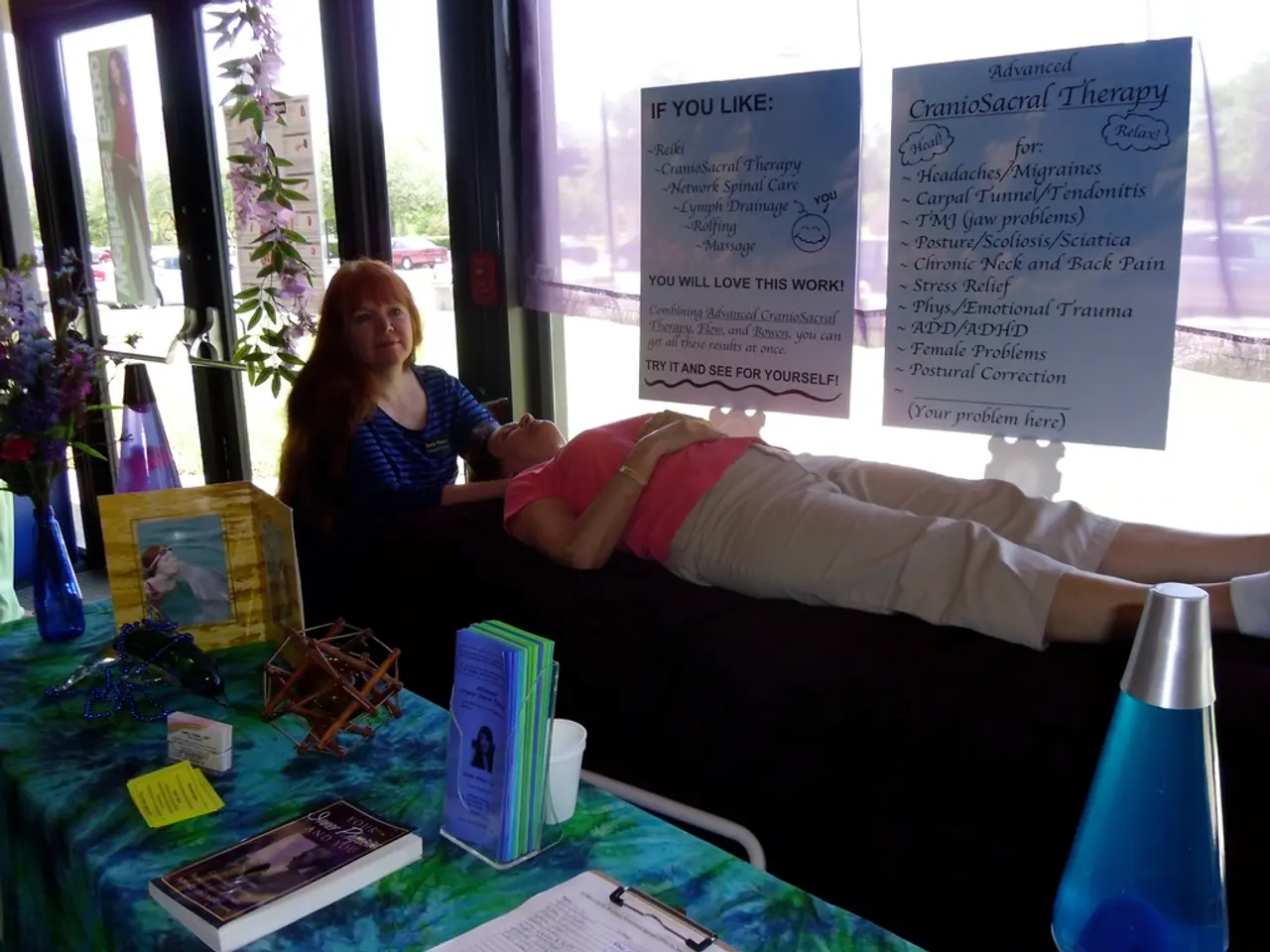Karina's Crusade Against Drugs: "I believed it was my sole option" - Intimacy was Karina's preferred vice.
In the heart of Copenhagen, a 51-year-old woman named Karina shares her profound journey of overcoming sex addiction. For years, sex was her drug, a cruel path that led her to a no less difficult escape. Today, she is an active participant in the "Human Library" project, a platform that aims to reduce prejudices and promote empathy.
Sex addiction, often perceived as a male-dominated issue, is not exclusive to men. According to research, while formal "sex addiction" is rare among women—especially when defined by clinical or self-reported standards—a meaningful minority experience distressing, problematic sexual behaviours.
Studies on pornography addiction specifically reveal that a small fraction of women self-identify as having a problem. In a large Australian study, only 0.5% of women agreed with the statement that they were "addicted" to pornography, increasing to 1.2% among women who reported viewing sex films[1]. However, broader research suggests that a higher proportion of women may experience distress over their sexual behaviours, with 7% reporting distress over out-of-control sexual behaviours, compared to 10.3% of men[4].
Sexual addiction, or Compulsive Sexual Behavior Disorder (CSBD), is characterized by a persistent, overwhelming preoccupation with sexual thoughts, urges, or behaviours that are difficult to control and cause distress or impairment in personal, professional, or social life[2]. For women, this can manifest as compulsive masturbation, frequent use of pornography, repetitive infidelity, or engagement in risky sexual encounters[2][4].
The emotional and psychological consequences can include shame, isolation, and impaired mental health[2]. Women may also face additional social stigma due to cultural taboos around female sexuality, making it harder to seek help[2]. It is important to note that distress or impairment solely due to moral judgment about sexual behaviour does not meet the diagnostic criteria for CSBD[3].
Karina's story, which she tells on her sofa, is a part of her addiction that even her closest friends and family don't know in all its details. Her living room, bathed in warm light, is adorned with an antique cabinet, an old armchair, family photos on the wall, and an embroidery that reads "No dick is harder than life".
The "Human Library" project, where people with traumatic experiences and those suffering from stigmas answer questions from strangers, aims to address the misconceptions about sex addiction. Karina, who worked in the closed ward of a psychiatric clinic for 20 years and completed five training and further education programs, including one as a sexologist, is one of the many voices working to challenge stereotypes and promote empathy towards those suffering from sex addiction.
BDSM is not inherently linked to sex addiction. It is important to distinguish between consensual BDSM practices and problematic sexual behaviours. Karina's early retirement from the psychiatric clinic was due to post-traumatic stress disorder (PTSD), a testament to the severe impacts sex addiction can have on individuals, regardless of gender.
In conclusion, while the prevalence of sex addiction in women may be underestimated due to cultural stigma and gender differences in reporting, it is essential to increase awareness and understanding of this issue. The "Human Library" project, and individuals like Karina, are paving the way for a more empathetic and informed society.
The following are some of the main causes of sexual abuse: a lack of understanding and awareness regarding sex addiction, cultural stigmas around female sexuality, and inaccurate perceptions that sex addiction is exclusive to men. Moreover, the field of science, particularly in the domains of health-and-wellness, sexual-health, and mental-health, can contribute significantly to our understanding of sex addiction and provide effective strategies for intervention and support.




